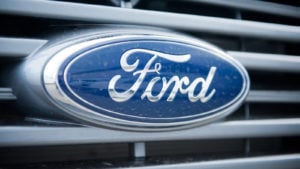There are companies out there that are currently operating in what most experts would call the autonomous driving realm. Some even have a fleet of operational robotaxis in key markets.
For those looking to bet on the future of this space, let’s dive into three self-driving car stocks. I think these could actually be front-runners in the race toward automation in the automotive sector.
Self-Driving Car Stocks to Buy: Alphabet (GOOG)

We all know Alphabet (NASDAQ:GOOG) as one of the Magnificent Seven stocks. However, this is also a company that’s a leader in the self-driving car market. The company’s subsidiary Waymo has seen impressive growth in recent years, Recently, the company released paid robotaxi services in the Los Angeles market.
Despite initial resistance from the Teamsters Union and the Los Angeles Department of Transportation, Waymo obtained regulatory approval for the service expansion. This was done after offering complimentary “tour” rides.
Waymo also revealed on April 9 that more than 50,000 individuals awaited their service’s launch. However, they didn’t specify the number of initial users. Operating within a 63-square-mile area from Santa Monica to downtown L.A., Waymo started with fewer than 50 cars in Los Angeles. Like traditional ride-hailing platforms like Uber, Waymo’s driverless units also have the same easy function. This now marks a growing trend for autonomous transportation.
Waymo’s robotaxis are certainly very cool to see in action. I’ve only seen videos, but do endeavor to take one on my next trip to L.A. The fact that these vehicles are completely autonomously operated is dystopian in a certain way, but also speaks to the impressive level of innovation and investment Alphabet has made in making these vehicles extremely safe.
General Motors (GM)

Another company that’s not necessarily known for driverless cars, General Motors (NYSE:GM) is a key player in the autonomous driving race. The company’s Cruise division is its self-driving robotaxi arm, which has had its fair share of troubles over the past year. GM stopped development on its Cruise platform after a pedestrian incident in San Francisco. Many thought the project may be dead, and GM’s stock price took a hit following this news.
However, the company has said it’s planning to resume testing of its self-driving robotaxis in Phoenix, Arizona in short order. Recent reports indicate that Cruise could see a limited return this year, potentially restarting in Houston or Dallas, following last year’s suspension.
Cruise had made some amazing progress, and was a leader in the autonomous driving space before its recent safety incident. A management reshuffle, and a clear message being sent that safety is the number one priority with this program, is a good thing in my books. If the company can re-calibrate and get things right, it’s a stock to watch in the self-driving world, for sure.
Ford (F)

A long-time GM rival, Ford (NYSE:F) is another company that’s looking to enter the self-driving space. A later addition to this nascent market, Ford has announced it’s taking a cautious and thoughtful approach to entering the market. The company aims to roll out a fourth-generation self-driving text vehicle (built on its Escape Hybrid platform) in key markets. The company’s partnership with Argo, a self-driving company Ford began investing in previously in 2017, is thus now starting to yield fruit.
We’ll have to see how this roll out ultimately goes. But Ford has said that it’s on the way to launching a full sell-driving service in short order, once an appropriate amount of testing is done.
Ford might be the more high-risk bet in this space, to be sure. The company is focused on increasing its return on invested capital to 20% from 2023’s 14% over the next four years. This aligns the company’s investments with more strategic objectives aimed at generating more stable growth. If the company can get self-driving right, it could be a key player in the U.S. market over the long-term.
On the date of publication, Chris MacDonald did not have (either directly or indirectly) any positions in the securities mentioned in this article. The opinions expressed in this article are those of the writer, subject to the InvestorPlace.com Publishing Guidelines.
Chris MacDonald’s love for investing led him to pursue an MBA in Finance and take on a number of management roles in corporate finance and venture capital over the past 15 years. His experience as a financial analyst in the past, coupled with his fervor for finding undervalued growth opportunities, contribute to his conservative, long-term investing perspective.
